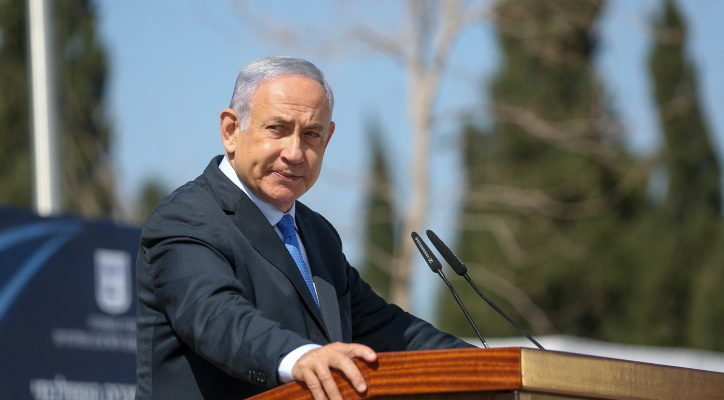Despite meetings with rivals and outreach to the leader of an Islamist Arab party, Netanyahu has not closed a deal during the four-week window.
By Associated Press
Israeli Prime Minister Benjamin Netanyahu faces a midnight deadline on Tuesday to put together a new coalition government.
Netanyahu has struggled to secure a parliamentary majority since March 23 — when elections ended in deadlock for the fourth consecutive time in the past two years. Despite repeated meetings with many of his rivals and unprecedented outreach to the leader of a small Islamist Arab party, Netanyahu has not been able to close a deal during a four-week window.
That window was to expire at midnight, at which point the matter returns to President Reuven Rivlin in the absence of an agreement.
A failure to reach a deal would not immediately push Netanyahu out of office.
Rivlin could give him an additional two weeks to form a coalition. He could give one of Netanyahu’s opponents an opportunity to form a government, or in a final move of desperation, send the matter straight to parliament.
That would give lawmakers a chance to choose one of their own as a prime minister. If all options fail, the country would face another election this fall, meaning months of continued political paralysis.
In the March 23 election, Netanyahu’s Likud emerged as the largest single party, with 30 seats in the 120-member parliament. But to form a government, he needs to have the support of a 61-seat majority.
That task has been complicated in large part by members of his own religious and nationalist base.
The New Hope party, led by a former Netanyahu aide, refuses to serve under the prime minister because of personal conflicts. The Religious Zionism party supports Netanyahu but has ruled out serving in a government with the Arab partners he has courted.
Yamina, another right-wing party led by a former Netanyahu aide, has refused to commit to either him or his opponents.
On Monday, Netanyahu said he had offered the head of Yamina, Naftali Bennett, the chance to share the job of prime minister in a rotation, with Bennett holding the post for the first year.
Bennett responded: “I never asked Netanyahu to be prime minister. I asked to form a government. Unfortunately, he does not have that.”
Looming over Netanyahu has been his ongoing corruption trial. Netanyahu has been charged with fraud, breach of trust and bribery in a series of scandals. The trial has moved into the witness phase, with testimony accusing him of trading favors with a powerful media mogul. Netanyahu denies the charges.
Last week’s deadly crush at a religious festival, in which 45 people were killed, has only complicated his task by creating an unwelcome diversion and calls for an official investigation into possible negligence.
Netanyahu’s opponents, meanwhile, have been holding meetings of their own in an effort to cobble together a possible alternative government.
Earlier this month his opponents gained control of the powerful Arrangements Committee, which controls the legislative agenda until a new government is formed. Last week, he was forced to abandon his appointment for interim justice minister, just before the Supreme Court appeared set to strike down the move.
Regardless, it remains unclear whether Netanyahu’s opponents can form an alternative government. The opposition includes a vast spectrum of parties that have little in common except for their animosity toward Netanyahu.





